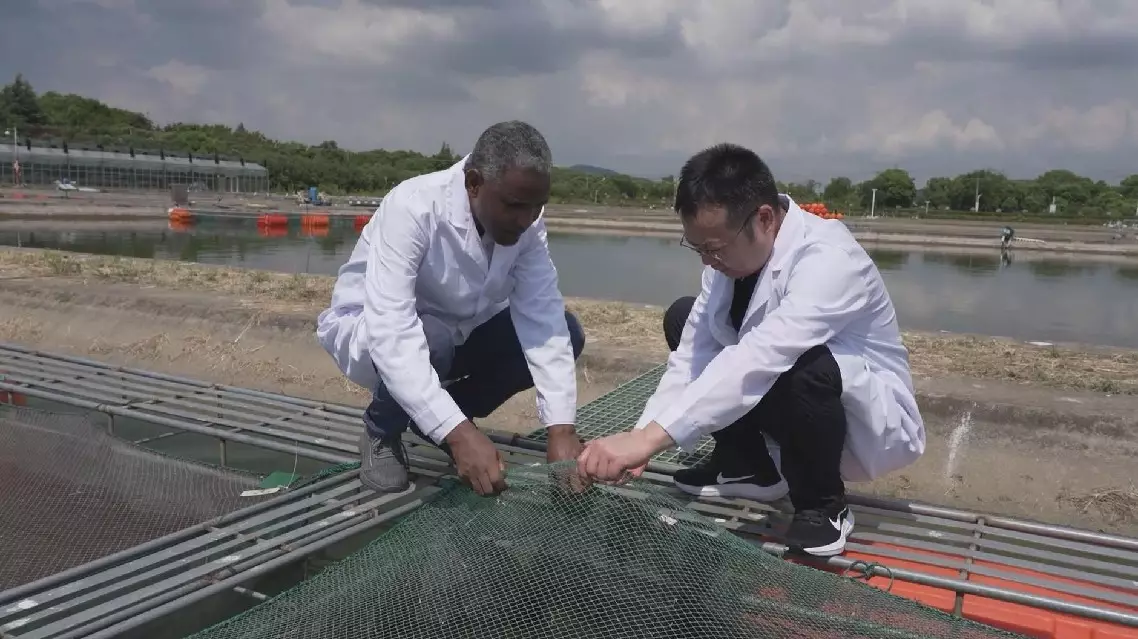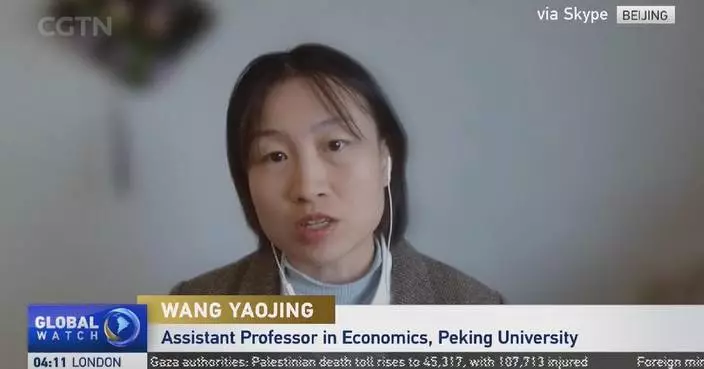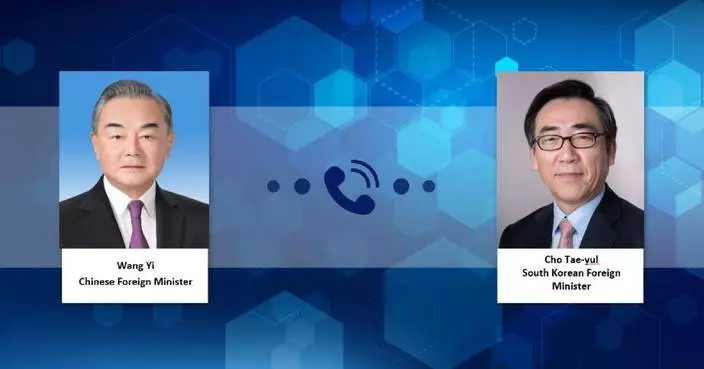Zeweldi Haile Okbatu, a student from Eritrea, has been studying the development of the fishery industry in China for nearly a year, aiming to import some of China's advanced aquaculture technologies back to Africa.
At a tilapia conservation center in Wuxi City in east China's Jiangsu Province, Okbatu is learning about fish breeding, selection, and transportation under the guidance of his mentor.
"I came to China last year in 2023 September, here to study my master's program. And the reason why I came to China is it is more relevant to my field of study. I gained a lot of new things here that we don't have in my country. There are a lot of new technologies, new way of teaching and new way of farming aquaculture, recirculation aquaculture system," said Okbatu.
Okbatu is one of many African scholars currently researching freshwater fisheries in China, with 45 of them pursuing postgraduate studies. This year, more than 130 African technical and management officials are attending training programs in China to bring China's advanced fishery and aquaculture technologies back to Africa.
"For the future, by building the cooperation especially with China and other related countries, we can gain a lot of experience. We know China is the first in fish production in the world, so we can gain a lot of experience from that. And we have a lot of resources especially when I come to Eritrea, we have a lot of marine resources, but we are not able to utilize it. And by this knowledge we are going to utilize our fishery resources as well as both freshwater and marine fisheries. So the future is bright, we can gain a lot,” said Okbatu.
According to a white paper on China's fisheries sector published by the State Council Information Office in October 2023, China is the world’s largest processor and exporter of aquatic products and its aquaculture output has led the world for 32 years, making a contribution to world food security.
The Freshwater Fisheries Research Center at the Chinese Academy of Fishery Sciences has long been instrumental in fostering practical collaborations with African countries, gaining widespread recognition from governments and people across the continent.
By teaching Chinese ideologies and technologies, the research center has helped African countries develop their fisheries and enhanced aquaculture innovation among Belt and Road Initiative partners.
"To date, we have trained over 3,180 senior fisheries technicians and managers from 56 African countries, enrolled 196 students from 28 African countries pursuing master's and doctoral degrees, while sending over 40 experts to more than 10 African countries as fisheries and aquaculture consultants. Our efforts have made a positive contribution to the advancement of local aquaculture technology and industrial development," said Bing Xuwen, deputy director of the research center.

Eritrean student explores China’s fishery industry, eyes Africa's aquaculture development









